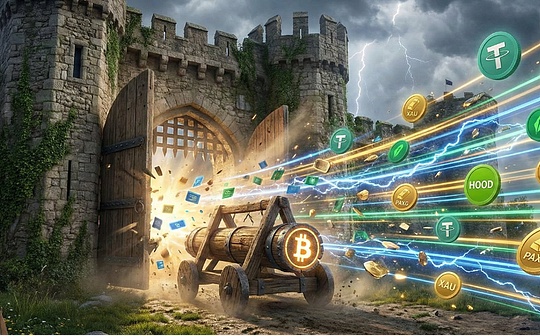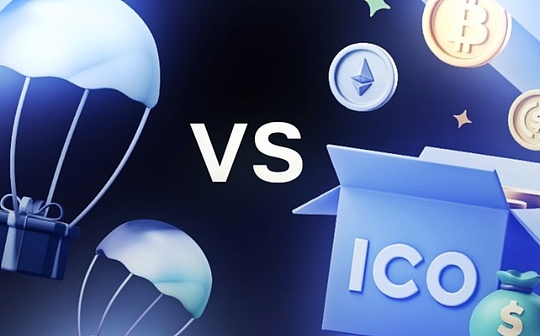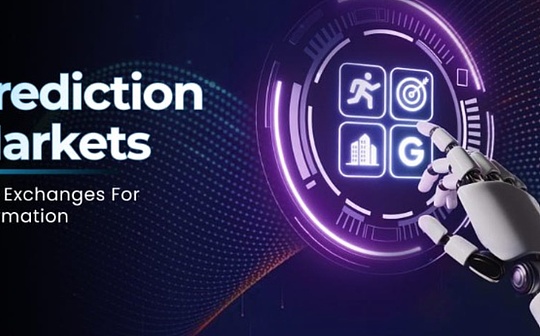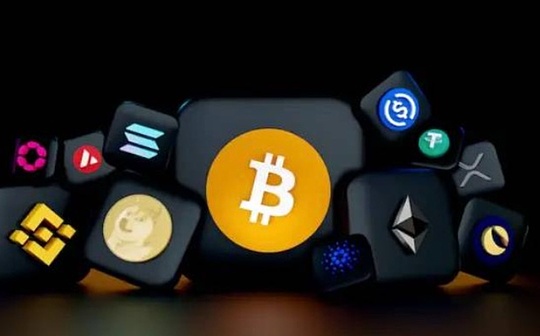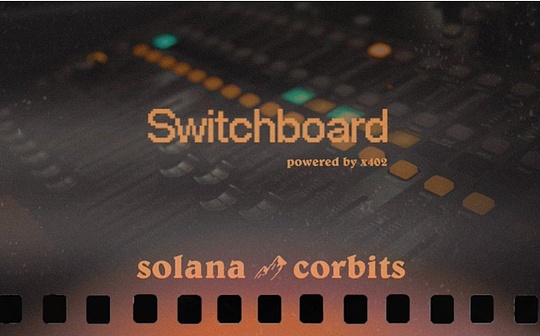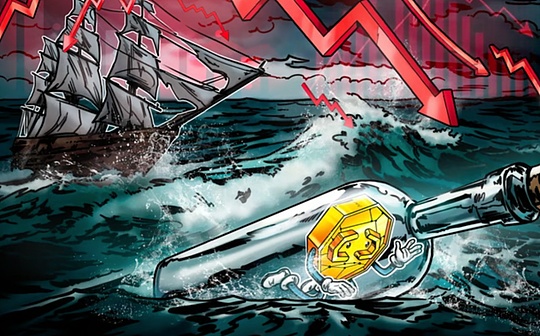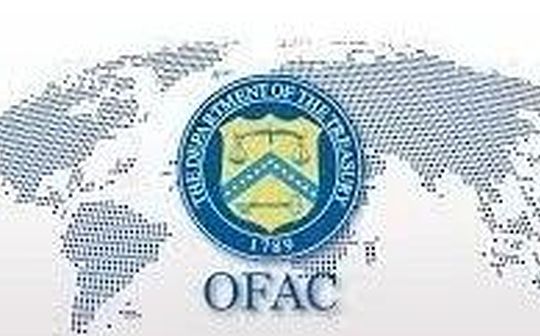
According to Labrys and Rated Network, since Ethereum switched from proof of work to proof of stake on September 15, 2022, about 42% of blocks in the Ethereum blockchain are included in the U.S. Treasury’s overseas asset controlsThe wallet address on the Office (OFAC) Specially designated national list (SDN List) was reviewed.In other words, these blocks exclude or block transactions with wallet addresses that appear on the U.S. sanctions list when processing transactions.And earlier this week, the proportion of blocks that performed such reviews was even close to 50%.This shows that in the Ethereum network, about half of the blocks are performing some form of transaction review according to the US sanctions list.
Unlike permissionless crypto networks like Bitcoin, OFAC-compliant relay nodes on Ethereum review wallet addresses that appear on the U.S. sanctions list.
Among them, MEV-Boost, the maximum extract value (MEV) tool from Flashbots, will review these wallets by default, and many relay nodes use their default settings.MEV-Boost also outsources validator block production to third-party markets operated by itself, maximizing returns through quantitative trading strategies such as pre-trading, post-trading, and pinch-trading, which may take advantage of ordinary Ethereum.user.
Some examples of MEV-Boost relay nodes include Flashbots (the largest to date) as well as BlockNative, Manifold, Eden, BloXroute Max Profit, BloXroute Ethical, and BloXroute Regulated.
This means that when using the Ethereum relay nodes (the nodes responsible for spreading transactions and block information) that use the MEV-Boost software to process transactions, they will automatically filter out those listed as specially designated national lists by the US OFAC (SDN List)wallet address transaction.Therefore, transactions at these addresses will not be included in the blockchain.Many relay nodes may choose to use the default settings of MEV-Boost, thereby implementing this review mechanism in their operations.
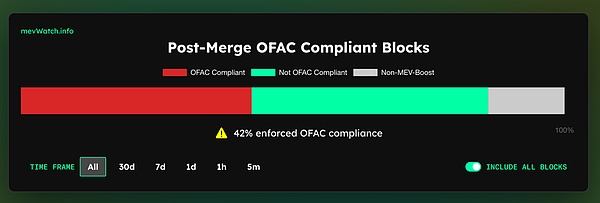
(Image provided by Mev Watch)
Relay operators complying with U.S. sanctions will review which users can broadcast transactions on the Ethereum blockchain.Of course, those users who have been sanctioned by the U.S. Treasury Office of Overseas Asset Control (OFAC) can still try to use other paths that do not comply with OFAC regulations, even if they cannot comply with OFAC regulations by complying with OFAC regulations (such as certain cryptocurrency exchanges or verification nodes).to execute their transactions.In other words, these users may look for trading platforms or network nodes that do not comply with OFAC sanctions to complete their blockchain transactions because these platforms or nodes do not filter or reject transactions based on OFAC’s sanctions list.
For example, Coinbase, Tornado Cash was sanctioned by the US government last year for providing currency mixing services to North Korea.But in the past two weeks, Coinbase has verified 686 Tornado Cash-related transactions, according to Tornado Warnings.Coinbase, as a verification node of the Ethereum network, confirms and joins these transactions to the blockchain.
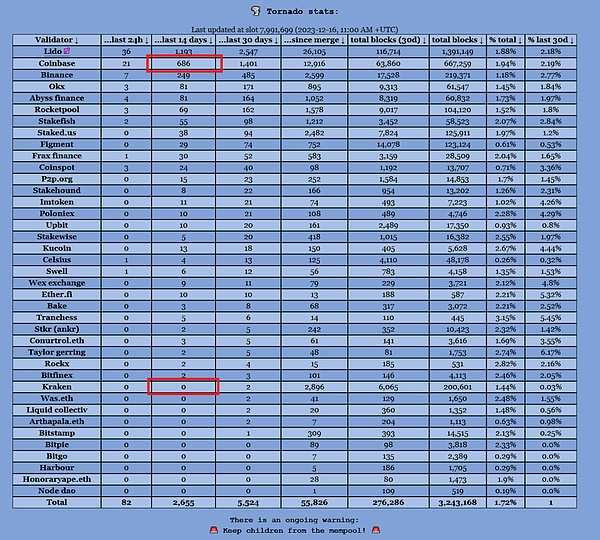
This table shows how many blocks each validator proposes, including transactions that interact (deposit or withdraw) with Torado Cash contracts or TORN troughs of all denominations.Source: Toni Wahrstätter
This was a bit embarrassing for OFAC, and it seemed that he turned a blind eye to Coinbase’s behavior.However, these contract interactions are clearly visible on the chain. It is estimated that sooner or later OFAC will need to face this problem and make decisions, which is also a relatively large potential impact on Coinbase and Ethereum.

